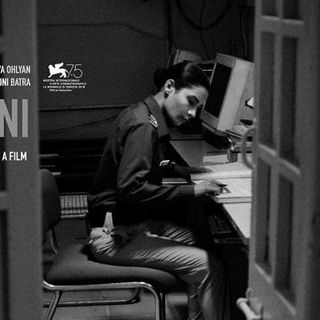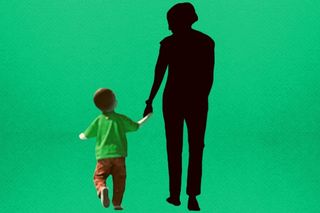
Peripheral Vision: a 19‑Year‑Old Nanny from Chakan
“I can’t go on long vacations because the baby needs me to be around.”

Our series, Peripheral Vision, explores the untold stories of people we encounter on a daily basis.
I came to Mumbai from a village called Chakan, near Pune, when I was 16. I was accompanying my older brother and his wife to the city after they had just been married to help them settle in in the new house and give my sister-in-law company while my brother would be away at work.
Initially, I didn’t like the city it at all. The homes were small, there were no neighbors to talk to, hardly any open space and greenery, and no animals I could pet.
But very soon, I noticed something very unique to the city. Everyone had a purpose, they all followed a routine. In our village, once lunch was over, everyone would just sit outside their homes in the sun, talk about other people or politics, watch television after sunset, eat dinner and sleep.
Here, I saw people struggling for little things — waiting in queues for water, to get into the train, hop on a bus — and it made me think that it is a lot of hard work, but at least there’s some meaning to people’s lives here. I knew that staying back would make a lot of sense. So I told my brother that I was going to find some work in the city. But I never wanted to work as a house help.
I spoke to a few people around and got to know that people in cities need nannies for their babies. I’ve always loved babies, so I thought this would be the best job for me. I kept asking around at a park near my house and found a new mother asking for help. She was skeptical, as I had no experience to handle her 2-month-old baby, but she called me over.
More personal stories on The Swaddle:
What’s It Like To Live With: A Partner With Depression
I started with just being around for her whenever she needed me to get something from another room or make chapatis, look after the baby while she napped, help her pack things for an evening stroll and making beds before I left.
She liked the way I organized things, and I often finished work before she asked me to do it. Slowly, I started understanding everything it takes to care for a baby and I started getting more involved with her.
I’d bathe her, make her sleep, play with her all day and take her to the park, sometimes all by myself. I started enjoying it a lot. My ma’am saw my dedication and decided to resume her job as a banker and told me she wouldn’t have to worry if I was around. I was very happy to hear that.
Slowly, I wasn’t only managing the baby, I was in charge of the whole house. I had to decide what the cook had to make, what the cleaner had to clean, and now, we are all like friends. We sit and have tea, eat together and play with the baby.
It’s been three years since I’ve been working here, and I feel like every day is a new day. Not only do I learn something new about babies but even about managing a house. It requires so much effort to keep a house up and running because one minute, when the television is working fine, the telephone isn’t — and the next minute it’s just the opposite. In our homes in the village, there isn’t so much to do, but I’m sure my mother, who has been at home, has sacrificed so much to keep it running smooth and has been strong to let me stay in the city to work while she manages another five people in the family all by herself.
For now, I’m very happy here. There hasn’t been a day when I’ve been scolded or reprimanded for anything. I get whatever I ask for and most importantly, I love my job because I can feel that the baby is happy with me. I can’t go on long vacations because the baby needs me to be around. Sometimes it’s difficult for me to visit my village for too many days at a time. Once, I had to come back a week early because she was kept asking for me and got cranky without me. I was very sad about leaving my own mother, but I had to come back because I had a baby waiting for me.
This interview has been condensed and edited for clarity. As told to Anubhuti Matta.
Anubhuti Matta is an associate editor with The Swaddle. When not at work, she's busy pursuing kathak, reading books on and by women in the Middle East or making dresses out of Indian prints.
Related


For More Bang for Your Buck, Hire a Mom Part‑Time And Give Her Flexible Hours
